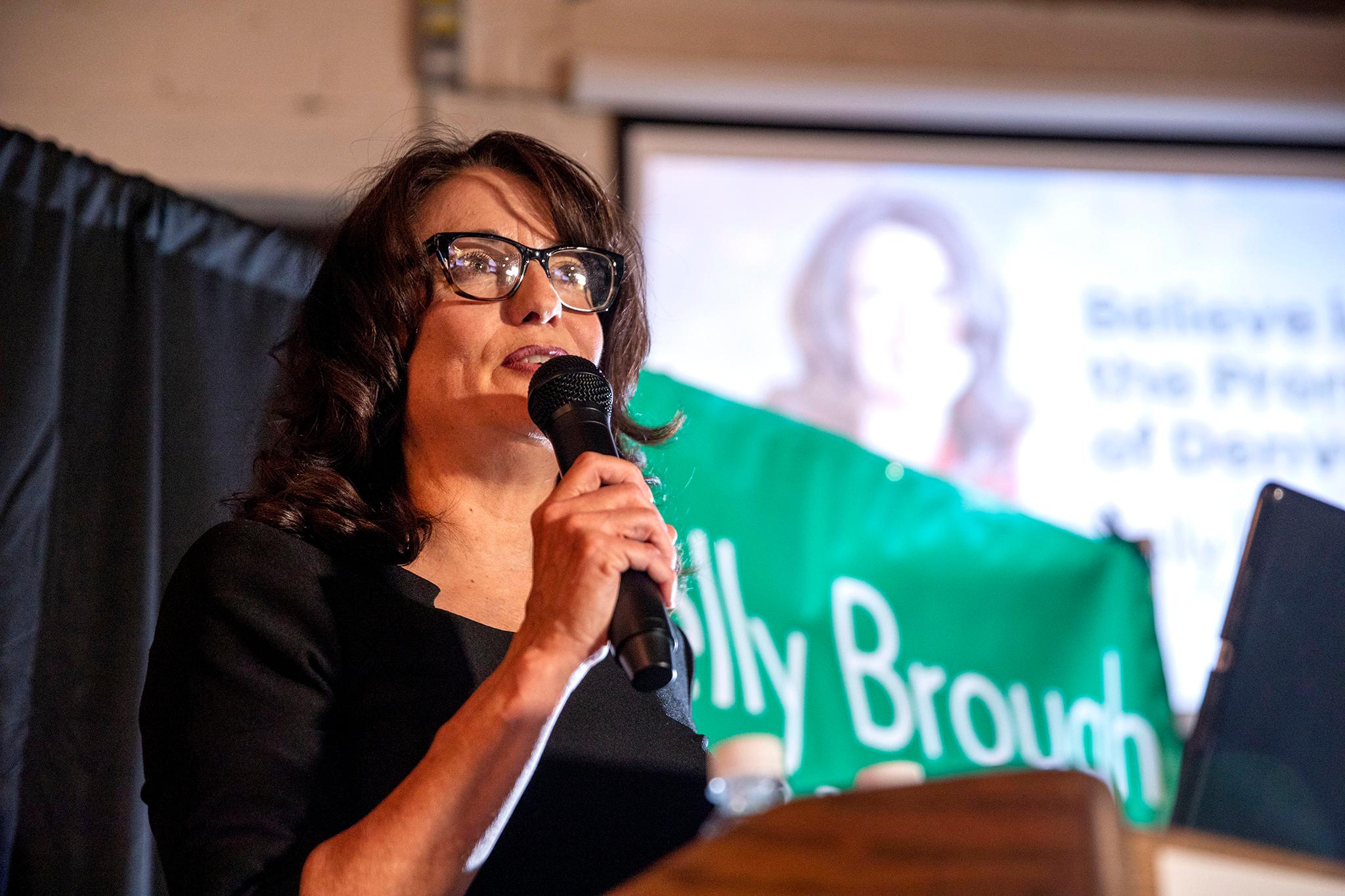Mayoral candidate Kelly Brough says she'll end unsanctioned homeless encampments in the city within her first year in office.
To do that Brough proposes expanding approved safe camping spaces and improving current shelter conditions until enough housing can be built or obtained. Brough's plan calls for better data collection, regional cooperation across cities and counties, and addressing drug and mental health treatment gaps.
"We have to provide a better alternative for people who have no place to go than to live on our streets," Brough said. "I don't think it is a goal to say 'I can end homelessness.' I do think what I could say is: I believe we as a region can create a system that can help manage and support people when things go wrong for them. And they need our help."
Brough's campaign shared a copy of the candidate's plan with Denverite.
Homelessness is a top issue in the Denver mayor's race.
One candidate claimed he'd end homelessness in his first term. And the growth of encampments around downtown through the pandemic has bedeviled the current administration, which is trying to balance connecting people, who are often reluctant, with services, housing and shelter beds while also responding to businesses and residents that don't want the tents around their homes and offices.
The issue has already caused headaches for Brough, a former CEO of the Denver Metro Chamber of Commerce, who less than two weeks ago said she would end the sweeps if elected, leading to frustration among downtown business interests who have helped her to collect the most contributions of any mayoral candidate.
Brough acknowledges that Denver has many shelter beds, and Denverites have voted to direct new tax revenue for services. The city's 2023 budget for the Department of Housing Stability, Brough notes, already devotes more than $250 million to address homelessness. About $88 million of HOST's 2023 budget comes from time-limited COVID recovery and response dollars.
Despite that level of spending, the shelter system doesn't work for most people.
As mayor, Brough would make shelters more welcoming, safe and accessible to diverse populations: families, transgender people and people with pets. "My understanding of the hesitancy is that we're not meeting the needs," Brough said. "And I think those are fair issues."
Brough would also create smaller, distributed shelters and convert more hotels and motels into shelters.
Brough doesn't anticipate asking for new tax revenue to deal with homelessness, but plans to carefully examine how the city and the metro area are spending and deploying resources.
"We need better data," Brough said. "We need everyone to report into it. So we understand how we're using our resources today, where we have gaps, where we have overlap, you know, which programs are having the best outcomes so we can put our money in the right place."
Brough said that effort will be regional, across cities and counties. She said her plan is endorsed by Lakewood Mayor Adam Paul, Golden Mayor Laura Weinberg, Wheat Ridge Mayor Bud Starker, and Former Westminster Mayor Herb Atchison.
Looking long term, Brough wants to increase the supply of permanent housing, though her plan is not clear how this will be accomplished.
Home construction lags population growth nationwide and is subject to macroeconomic factors. Much of the housing built in the last decade in Denver has either been expensive single family homes, or rental apartments -- and the city is very behind on meeting its affordable housing needs.
Brough did say she would build on the city's Supporting Housing Social Impact Bond program, where private and philanthropic investors put money into housing programs with support services for chronically homeless people the most in need of resources.
If elected mayor, Brough would focus on monitoring those most at risk of losing housing -- partnering human services, landlords and employers, to prevent evictions.
And Brough believes that intense outreach to deliver support services, connecting people to food and mental and medical health care, can help stabilize households.
"We know if you're receiving those benefits that you're probably vulnerable already and struggling," Brough said, noting that this is personal for her. "My family needed assistance, and I credit it with allowing my family to get back on our feet.
Ideally, she said she wants to prevent "not just the cost, but the trauma of someone losing their home and what that does to families."













